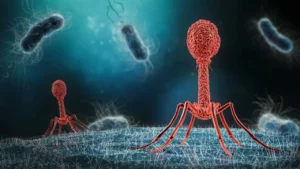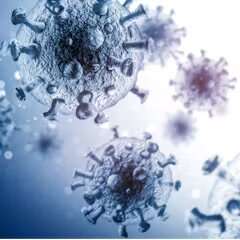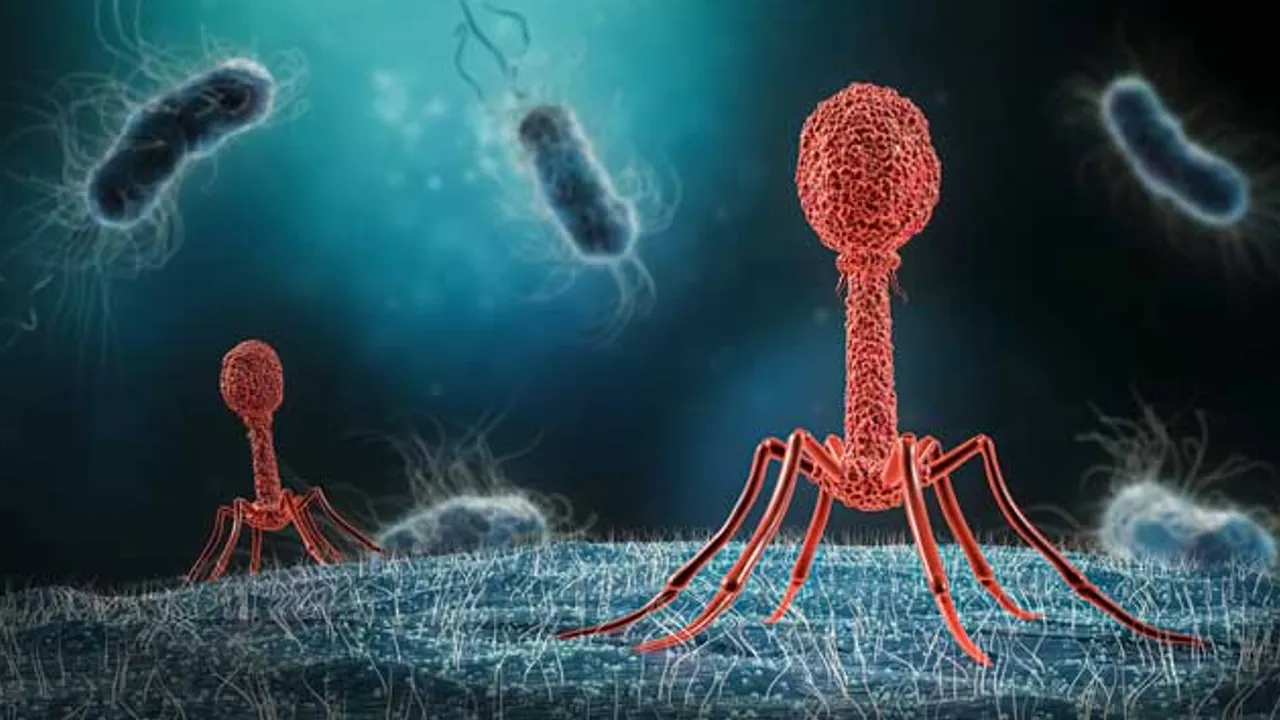Northwestern University’s Breakthrough in Phage Therapy

In this groundbreaking study, Northwestern University researchers have reached a significant milestone in the realm of combating deadly pathogens by engineering viruses. The focus of their innovative approach lies in the meticulous modification of the DNA of a bacteriophage—a type of virus specialized in infecting bacteria. The researchers harnessed this modified DNA to target and eliminate Pseudomonas aeruginosa (P. aeruginosa), a notorious bacterium known for its high resistance to antibiotics and lethality. This breakthrough marks a pivotal step towards developing targeted therapies to address antibiotic-resistant bacteria, offering a potential solution to a critical global health challenge.
Phage therapy, the manipulation and utilization of bacteriophages, has garnered attention as a promising alternative to traditional antibiotics. The Northwestern University study not only demonstrates the effectiveness of this approach but also sheds light on the intricate mechanisms at play within bacteriophages. By gaining insights into the inner workings of these viruses, researchers aim to engineer designer viruses with enhanced therapeutic capabilities. This pioneering effort signifies a departure from conventional antibiotic treatments and delves into the largely unexplored territory of phage biology, contributing to our evolving understanding of these microscopic agents in the ongoing battle against antibiotic-resistant pathogens
Unveiling the Mechanism
Upon introducing the modified DNA into P. aeruginosa, the Northwestern University researchers observed a remarkable feat—the engineered genetic material adeptly bypassed the pathogen’s robust defense mechanisms. Once inside the bacterium, the modified DNA orchestrated the assembly of virions, which acted like microscopic assassins by cutting through the cell of P. aeruginosa, ultimately resulting in the bacterium’s demise. This ingenious method not only showcases a potential breakthrough in addressing antibiotic-resistant bacteria but also serves as a gateway to unraveling the intricate workings of bacteriophages, a field of biology that has remained largely uncharted until now.
The success of this innovative approach provides a glimmer of hope in the urgent quest for alternatives to antibiotics, especially in the face of rising antimicrobial resistance. The ability to engineer viruses to target specific bacterial pathogens demonstrates the potential of phage therapy as a tailored and precise solution. Beyond its immediate therapeutic implications, the study’s findings contribute immensely to expanding our understanding of bacteriophage biology. This newfound knowledge could pave the way for more sophisticated and effective applications of phage therapy, bringing us closer to a future where antibiotic-resistant infections are addressed with precision and ingenuity.
Phage Therapies: A New Frontier
Amid the escalating crisis of antimicrobial resistance, often described as a ‘silent pandemic,’ the imperative for viable alternatives to antibiotics has reached unprecedented levels. The indiscriminate use of antibiotics has contributed to the emergence of resistant strains, rendering conventional treatments ineffective. In response to this global health challenge, phage therapy has emerged as a promising and distinctive avenue. It presents a unique advantage by offering a targeted approach to combat specific bacterial infections without causing the widespread disruptions often associated with traditional antibiotics.
The rise in antimicrobial resistance poses a multifaceted threat, with millions of individuals succumbing to infections that were once treatable. The Centers for Disease Control and Prevention (CDC) reports nearly 3 million antimicrobial-resistant infections occurring annually in the United States alone, resulting in over 35,000 deaths. This alarming trend underscores the critical need for innovative therapeutic strategies, and phage therapy has emerged as a beacon of hope in the quest for effective alternatives. Its ability to precisely target and combat bacterial pathogens without adversely affecting the body’s natural microbial balance positions phage therapy as a potential game-changer in the ongoing battle against antibiotic-resistant microbes.
The Urgency of Antibiotic Alternatives
The global threat posed by antimicrobial-resistant infections has reached alarming proportions, impacting millions of individuals annually and leading to thousands of fatalities. This burgeoning crisis is fueled by the overuse and misuse of antibiotics, resulting in the emergence of resilient bacterial strains that defy conventional treatment. Northwestern University’s Erica Hartmann, a leading figure in the study, underscores the pressing need to explore alternatives to antibiotics as a matter of urgency. The study conducted by Northwestern researchers represents a pivotal stride forward in the quest for effective solutions, particularly in the realm of phage therapeutics.
Erica Hartmann’s emphasis on the urgency of exploring alternatives to antibiotics resonates with the growing realization that traditional antimicrobial treatments are becoming increasingly inadequate. The Centers for Disease Control and Prevention’s (CDC) data revealing millions of annual antimicrobial-resistant infections in the United States alone underscores the gravity of the situation. The study’s significance lies not only in addressing the immediate need for innovative therapeutic approaches but also in laying the groundwork for a paradigm shift in the way we combat infectious diseases. By delving into the uncharted territory of phage therapy, Northwestern’s research holds the promise of transforming our approach to antibiotic-resistant infections, offering hope for a future where precision-targeted solutions can effectively thwart the threat posed by resilient microbial adversaries.
Phages: Microbiology’s Final Frontier
Erica Hartmann, an associate professor of civil and environmental engineering at Northwestern, describes phages as microbiology’s ‘final frontier.’ Despite the vast number of phages on Earth, scientists have only scratched the surface in understanding their diversity and mechanisms. The current research marks a pioneering effort to engineer phages in real-time, unlocking their potential as targeted therapeutics.
Tailoring Phage Therapeutics
Phage therapy offers a level of specificity that traditional antibiotics lack. By modifying or pinpointing existing viruses, researchers aim to design tailor-made phage therapeutics with precise traits, minimizing side effects. This targeted approach could revolutionize the treatment of bacterial infections without the collateral damage often associated with broad-spectrum antibiotics.
Focus on P. aeruginosa: A High-Priority Pathogen
While previous studies predominantly centered on Escherichia coli, Northwestern’s research distinguishes itself by focusing on P. aeruginosa, one of the five most deadly human pathogens. Notorious for its resistance to multiple drugs, P. aeruginosa poses a severe threat, particularly in hospital settings and among individuals with compromised immune systems.
Mimicking Infection: Overcoming Defenses
The study’s methodology involved using electroporation to introduce phage DNA into P. aeruginosa, mimicking the infection process. Overcoming the bacterium’s antiviral defenses required synthetic biology interventions, ultimately leading to the successful destruction of the pathogen.

In conclusion, Northwestern University’s breakthrough in engineering viruses represents a pioneering step in phage therapy, offering hope in the fight against antibiotic-resistant bacteria. As researchers delve deeper into microbiology’s ‘final frontier,’ the potential for tailored phage therapeutics opens new avenues in addressing the global challenge of antimicrobial resistance. The study’s publication in the journal Microbiology Spectrum on January 24 highlights its significance in advancing our understanding and capabilities in this critical field of research.
